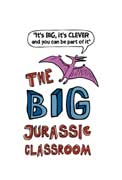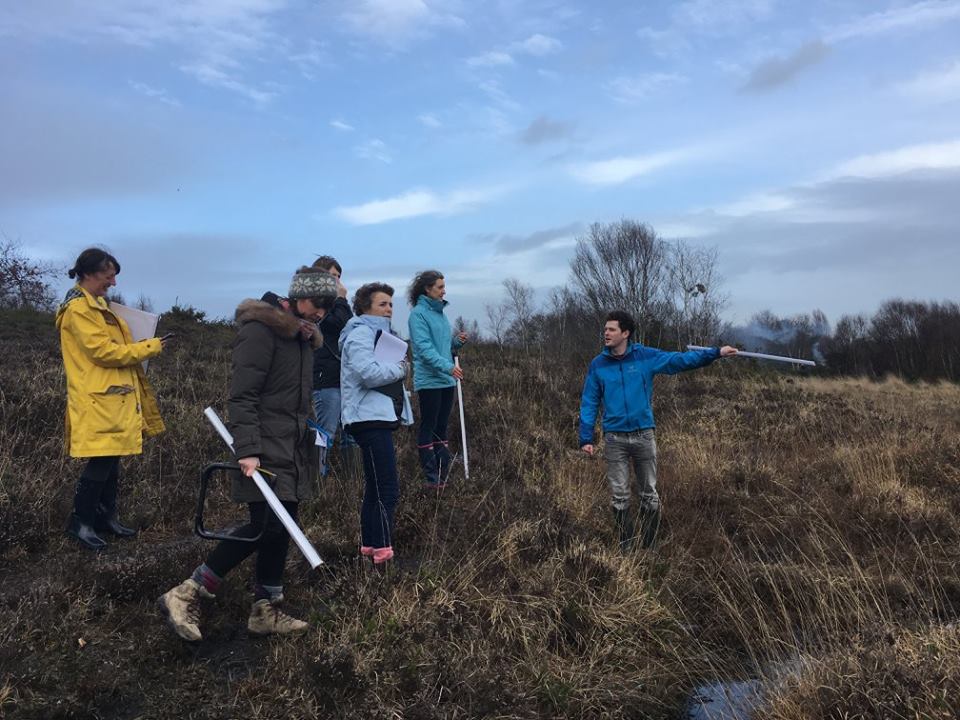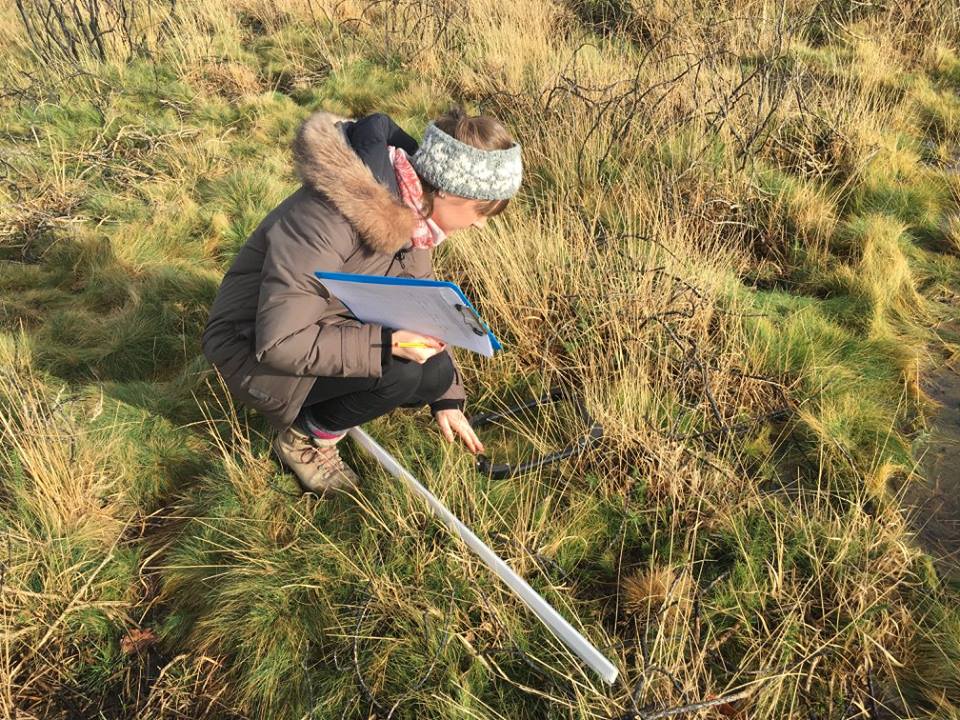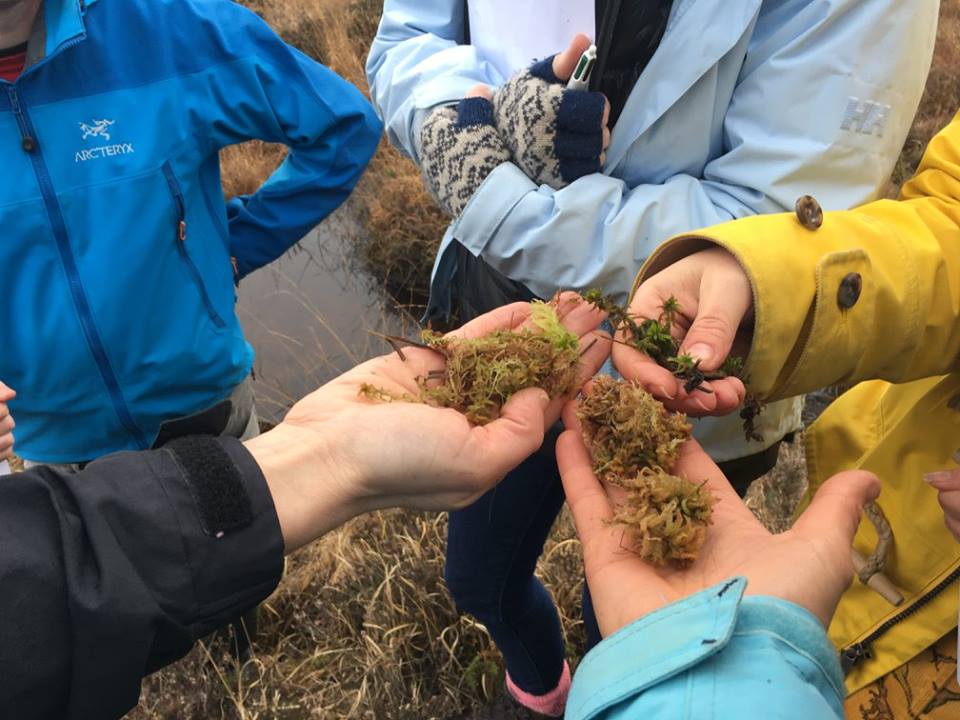By Anjana Ford, Jurassic Coast Learning and Participation Manager
The Big Jurassic Classroom Discovery Days are the showpiece events of the Jurassic Coast Team’s Primary Science Teaching Trust-funded formal education programme. Our aim is to run a series of condensed teacher training days in a very short space of time, to capitalise on the knowledge and experience of scientists in the real world, and having them deliver directly to teachers in Dorset and Devon who are delivering science in-classroom.
Our aim is to identify scientists who have a passion for science communication and who have a real interest in the Jurassic Coast and its core elements – rocks, fossils and landforms. In total, we have delivered five Discovery Days at different locations on the Jurassic Coast. Each Discovery Day follows a standard format in the morning, where we give teachers the foundation and grounding for how to deliver Earth Science content in the classroom. In the afternoon we work closely with our resident scientist and artist to inspire our teachers with a variety of approaches to lead their own investigations back at school.
Fundamentally, our approach is to work with teachers who are non-science specialists, helping them to understand the often technical and abstract information that makes the Jurassic Coast a UNESCO World Heritage Site. We aim to transmit that information in a way that’s inspirational and accessible, so even if you’re a teacher who hasn’t studied science since High School, it’s still something you can go back to your school and deliver with excitement and enthusiasm. Our aim is that our Discovery Days break down the barriers around teaching inspirational science in the classroom, particularly Earth Science.
In the morning of each day, I take the teachers through the science curriculum and detail the different elements of how earth science is included. I discuss progression in science skills and knowledge from Lower Key Stage 2 to Key Stage 3. It is important for teachers that we show them a road map for how the skills they are teaching in science at years 3 and 4 are critical to developing scientific thinking and skills that will later become skills for life. These core skills such as observing, describing, comparing and evaluating are just some of the skills that children need to learn in order to be future scientists.
As children progress through school, those skills become more complex and by upper Key Stage 2, teachers must help children turn those questions into enquiries, and to develop a process of systematic thinking. For example, the cause and effect process; if I put a rock and a sheet of paper into a tank of water, what will happen and why? Our objective is to provide inspiring and robust learning content so that children have opportunities to observe, ask questions, and to develop the confidence and knowledge to evaluate and present their own conclusions. As children progress into Key Stage 3, there is an expectation that they will build on their science skills to now broaden their abilities to enquire and question about the scientific method and its impact on the world around them. An important aspect of this learning is how science influences every aspect of the world around them, and how it has implications for their life and their future.
For instance, at a recent Discovery Day we talked about microbeads. During the 1990s they were considered a go-to source of innovation in personal care products. Today we are more aware of the environmental implications of using them, and there is a shift change in policy to ban them from cosmetic products. This is a great and contemporary example for children at Key Stage 3 for how scientific attitudes and research can change society within their own lifetimes.
Following each morning session, our scientist-in-residence then creates a focus on a particular piece of scientific investigation. On our first day at SafeWise in Bournemouth, we had a venue that was adjacent to a protected heathland area. We invited Dr Alex Lovegrove who is a biologist and specialist in heathland ecology to work with our primary teachers. He took the teachers out on to the heathland, and asked them to use the scientific method to evaluate the impact of burning on the heath.
The teachers had quadrats, and they put these on a random area on the heath to record data that showed them how many different plants were in each quadrat square. If time allowed, they could return a few months later, conduct the same investigation and evaluate the recovery response of the heath to the burning. This hands-on science investigation was a really valuable process, because it put into practice the skills that teachers are teaching their own pupils at Key Stage 2. Alex was particularly good at detailing what he does as a scientist. Crucially all of the key skills he has a professional research scientist are the same skills that children are learning at Years 3 and 4. It was an incredible link for those teachers on that day, understanding that they really are training scientists for the future.
- Dr. Alex Lovegrove with teachers on the heath
- Using quadrats to analyse the impact of burning on the heath
- Plant specimens from the heath
Our next Discovery Day at Dorset County Museum focused on palaeontology and we asked Dean Lomax, one of the country’s leading dinosaur experts, to come along to talk about his research on ichthyosaurs. Dean set up an investigation all about ichthyosaurs, based on his research and he structured it very much as he would have done in the laboratory. He gave the teachers lots of pictures and fossil specimens, and asked them to start de-coding how these creatures moved, lived, and reproduced. His entire focus was on evidence-based learning which is a critical part of developing a scientific approach towards learning.
One of the key outcomes for teachers on that day was Dean’s personal story. As a young boy he was passionate about palaeontology but found school to be a difficult learning environment for which to express his knowledge and passion for this subject. Despite lots of challenges, he has since travelled the world and developed a reputation for being a world expert on ichthyosaurs and also British dinosaurs. He now works at the University of Manchester as a research fellow, is highly published and has a successful media career.
Dean showed the teachers that, no matter what your background, as long as you have a passion for a subject, that passion, love and enthusiasm can drive you forward.
One of the key things Dean said that really resonated with the teachers was “as scientists, we don’t know all the answers. Actually there are questions still to be asked.” I believe that one of the key issues we have with teaching science in schools, is that children think grown-ups are out there doing all the work, and ask themselves, “What else is there to be done?”. Dean really impressed on to the teachers that “We still don’t know everything we need to know about science, there is so much more to discover”.
For the teachers it was so valuable to hear that from somebody who lives and breathes that message. Dean is someone who goes into museums, universities and looks at specimens of ichthyosaurs that have long been forgotten, maybe for hundreds of years, and he goes and finds aspects of particular specimens that provide new ideas for science. To pass on that ethos to teachers is a brilliant outcome for this project.
In Anjana’s next blog: Our Jurassic Coast Discovery Days take in inspirational scientific learning for teachers at The Etches Collection, Chesil Beach Centre, Charmouth Heritage Coast Centre and Seaton Jurassic.













